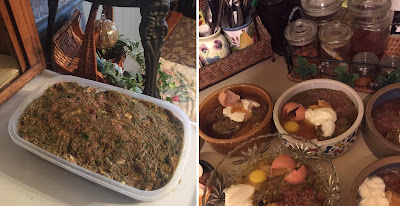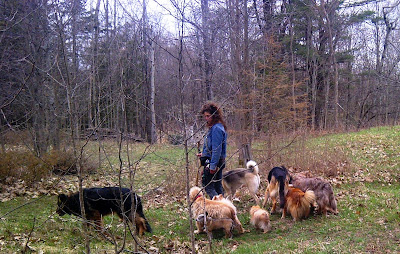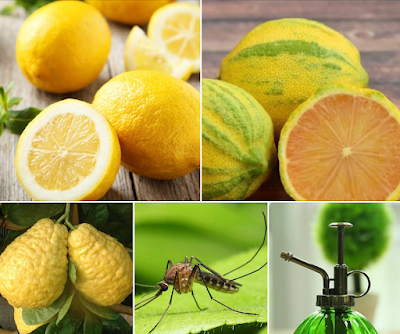COCONUT OIL IS GOOD FOR YOUR DOG'S and CAT's HEALTH
In this article:
- About coconut oil
- Health benefits of coconut oil
- How to use coconut oil as a topical healing aid
- Golden paste recipe
- Natural insect repelling balm recipe
- Fur and skin issues
- Toothpaste recipes
- Wound treatment
- How to select a good quality coconut oil
- How to add coconut oil to your dog or cat's daily diet
- Daily dosage based on body weight
About Coconut Oil
Coconut oil can be used as a supplement and topical treatment to support your dog, puppy cat and kitten's health.
Digestion/absorption of nutrients
How To Use Coconut Oil As A Topical Healing Aid
Skip
the toxins and carcinogens found in many insect repellents and make our
own insect repellent balm for dogs, puppies, cats, and kittens.
Toothpaste Recipes for Maintenance of Oral Health
Coconut oil and herbal toothpaste recipe:
Wound Treatment
Gently massage coconut oil into skin, 1x to 2x per day until no longer needed.
How To Introduce Coconut Oil to Your Dog or Cat's Diet
Most of the saturated fats in coconut
oil come from Medium Chain Triglycerides (MCTs). The MCTs are the source of
most of the benefits of coconut oil. One of the MCTs is lauric acid.
Lauric
acid is antibacterial, antiviral and anti-fungal. A dog
and cat's digestive system efficiently metabolizes MCTs, providing an immediate source of energy, gently raising metabolism. In-turn supporting physical performance and supporting weight loss in overweight dogs and dogs
suffering from thyroid issues. Coconut oil also improves a dog’s skin and
coat, aids digestion and reduces the severity of allergic reactions.
Heath Benefits of Coconut Oil
A partial list:
Digestive Aid
Digestion/absorption of nutrients
Healing of digestive problems (i.e.
inflammation of the bowls)
Help reduce bad breath
Helps eliminate hair balls and related
coughing
Bones, Immune System, Metabolism
- Anti-bacterial
- Anti-fungal
- Anti-viral
…three important attributes in the fight against infection, cancer and other diseases;
- Antioxidant
- Balances, regulates insulin
- Helps reduce weight
…diabetes prevention and control
- Increases energy
- Aids in health of ligaments
- Helps with arthritis relief
- Improves brain energy metabolism
- Reduces risk of brain lesions in older dogs
How To Use Coconut Oil As A Topical Healing Aid
Golden Paste Recipe
Golden paste is a potent, natural anti-inflammatory, analgesic, antibacterial, antiseptic, and
anti-carcinogenic – it is also rich in antioxidants.
Golden paste recipe with coconut oil:
Golden paste recipe with coconut oil:
- Go to this article.
Insect Repelling Balm Recipe
Insect repelling balm recipe:
- Go to this article.
Skin and Fur Issues
Gently massage coconut oil into fur and skin as needed, 1x to 2x per day until no longer needed.
Helps to clear-up:
- Eczema
- Flea allergies
- Dermatitis
- Itchy Skin
- Ringworm (a fungal infection)
Improves health and appearance of:
- Skin
- Fur
- and deodorizes
- Prevents and treats topical yeast and fungal infections
- Disinfects cuts and supports healing of wounds
Toothpaste Recipes for Maintenance of Oral Health
Coconut oil, natural toothpaste recipes:
- Go to this article.
Coconut oil and herbal toothpaste recipe:
- go to this article
Wound Treatment
Gently massage coconut oil into skin, 1x to 2x per day until no longer needed.
Supports the healing of:
- Cuts
- Dry skin
- Hot spots
- Insect bites
- Insect stings
- Wounds
How to Select A Good Quality Coconut Oil
Purchase unrefined, cold-pressed organic Virgin Coconut Oil (VCO)
or Extra Virgin Coconut Oil (EVCO). Despite what manufacturers and people may say the difference between VCO and
EVCO is simply a marketing campaign borrowed from the olive oil manufacturing
community - there is no real difference between the two (EVO and EVCO).
Different brands of
coconut oil have different tastes - some faint, very subtle coconut taste to
others that will have a much stronger taste of coconut. Remember the one sense
we humans have that is stronger than our dog’s senses is taste. Your dog has
about 1700 taste buds, while we have about 9000. Don’t worry about the taste -
concentrate instead on the quality of the product.
How To Introduce Coconut Oil to Your Dog or Cat's Diet
When first
introducing coconut oil to your dogs and cat's diet it is best to use a lesser amount
that the maximum dosage indicated above. The dosages above represent a typical maintenance
dosage. Introductory dosages should be in the range of ¼ tsp per day for small
dogs, cats, puppies and kittens and 1 tsp per day for large dogs. If you know that your dog
has a sensitive digestive system then start off with a few drops of coconut oil
a day. You can then gradually increase the amount of coconut oil over several
weeks.
Large amounts of
coconut oil given to a dog or cat can cause diarrhea, nausea, vomiting or greasy stools while his/her body
adjusts to the change in diet. Start with small amounts, such as ¼ teaspoon per
day for small dogs or puppies and 1 teaspoon for large dogs, or even just a dab
if your dog's or cat's constitution is sensitive. If your dog seems tired or
uncomfortable or has diarrhea, just cut back the amount temporarily. Gradually
increase the amount every few days.
The reason for this phased-in approach
is because coconut oil kills bacteria, viruses, parasites, yeasts, and fungi,
your dog or cat may respond negatively to the detox aspect of coconut oil. Signs of
detoxing too rapidly may include lethargy, headaches, flu-like symptoms,
fatigue, and diarrhea. If your dog does have any such reaction, just temporarily
cut the daily amount back to allow your dog’s and cat's system to gently adjust. This is
another reason why dividing your dog’s intake of coconut oil between two
feedings a day is a good approach.
Coconut Oil Daily Dosage Based on Body Weight
The recommended maximum dosage is:
- ¼ teaspoon for every 10 lbs of body weight twice daily, or
- ½ teaspoon for every 10 lbs of body weight once daily.
Holistic Diet, Nutrition, Wellness Services Tailored to Your Individual Dog and Cat
For information about my holistic diet, nutrition and wellness services, visit my holistic wellness services page.
Maintain good health | Address acute and chronic health issues | Pre and post surgery support and recovery
My holistic wellness services are available worldwide via video consultation.
🌎 USA | Canada | UK | Europe | Australia | New Zealand | Asia | South and Central America | Africa | UAE
📱FaceTime | Facebook | Skype | WhatsApp
To set-up your holistic wellness consultation get in-touch via email, go to my contact me page.
Holistic Behavioral Services for Your Dog
For information about my holistic behavioral services, visit my holistic behavioral services page.
For dogs of all ages, sizes and breeds.
My behavioral services are available worldwide via video consultation.
🌎 USA | Canada | UK | Europe | Australia | New Zealand | Asia | South and Central America | Africa | UAE
📱FaceTime | Facebook | Skype | WhatsApp
To set-up your holistic behavioral session get in-touch via email, go to my contact me page.
Affiliations to Companies
✓ None.
✓ I don't sell food, supplements, or other products.
✓ I'm not aligned with any companies.
Article and graphics by Karen Rosenfeld.
Photo credit: photo at top of article by 










